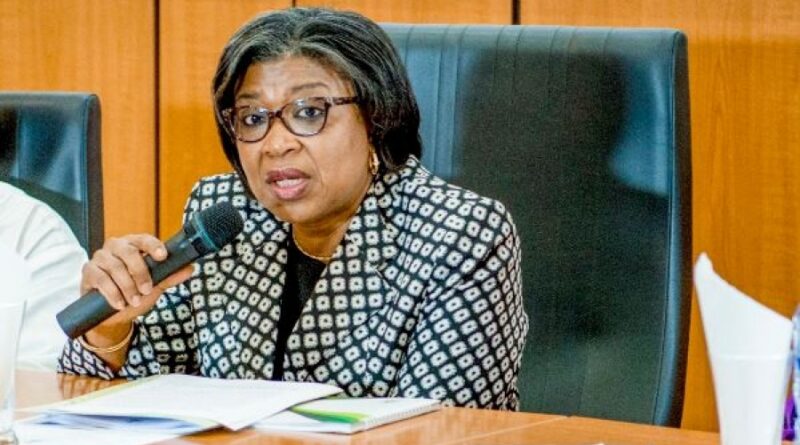T-Bills debt reaches N10tn as FG raises another N284bn.
The Central Bank of Nigeria received a total of N284.26bn at the most recent auction of Nigerian Treasury Bills on behalf of the federal government.
In the time between December 2023 and March 2024, its T-Bills obligations increased by 60%, reaching N10.4 trillion.
Debt Management Office auction results, confirmed by data uploaded on the CBN website on Thursday, show that the auction drew a large number of investors; the total subscription amounting to N773.98bn was significantly higher than the total offer amounting to N228.72bn.
In addition to offering a means for the government to cover its immediate expenses, the most recent result shows that demand from yield-hungry investors remains high.
Remember that the government’s June bond sale brought in N297bn? That’s little over 66% of their objective and 22% lower than May’s total of N380.77bn.
In addition to offering investors a reasonably safe investment alternative, helping to control the country’s debt profile, and permitting efficient fund administration, bonds play a crucial role in the government’s debt management plan.
Given the certainty with which the government has always paid its payments, we consider Treasury bills and FGN bonds to be risk-free, or at least zero-risk. Otherwise, they have the option to create money and repay it.
The Central Bank of Nigeria (CBN) manages the money supply through the issuance and redemption of Treasury bills, which are an instrument of monetary policy.
In addition to covering budget deficits, the government can use T-Bills to collect short-term revenue to fund activities.
After a previous auction on June 13, 2024, with an amount of N44.23bn, the most recent auction saw a rise of 417.1 percent in the amount offered.
Revenue increased by 414.7% from N55.23 billion, and subscriptions increased by 89.8% from N407.76 billion.
The auction had three different maturities of bills: 91 days, 182 days, and 364 days.
Subscriptions totaling N36.29bn were received for the 91-day tenor, which matures on September 25, 2024, with an allocation of N28.15bn. The offering price was N29.83bn. With a stop rate of 16.30 percent, the bids for this tenor ranged from 15.98 percent to 24.00 percent.
There was an offer of N30.67bn, subscriptions of N40.58bn, and an allotment of N36.44bn for the 182-day bills, which mature on December 25, 2024. A stop rate of 17.44% was used, and the bid range was 17.00% to 21.00%.
The highest bid was N168.21bn for the 364-day bills with a maturity date of June 25, 2025. An allotment of N219.67bn and a subscription of N697.11bn were recorded. There was a stop rate of 20.68% and a bid range of 16.0% to 25% for this tenor.
The substantial oversubscription across all tenors shows that investors strongly believe in Nigerian Treasury Bills as a secure investment option, regardless of the current economic climate.
Presumably motivated by anticipations of future economic stability and favourable returns, the high subscription rate, especially for the 364-day bills, indicates a preference for longer-term securities.
Investors are eager to acquire these government securities, as indicated by the variety of bids and stop rates across the different tenors.
At the same time, the greatest T-Bill debts are a direct outcome of the government’s insatiable appetite for other funding sources.
The DMO relies on monetary and fiscal policy to combat inflation and cover the government’s short-term expenses, which is why there was a jump in Q1 2024 when the central bank issued multiple T-Bills.
From N2.8tn in 2024 to 5.8tn in July 2023 and N10.4tn now, the debt balance has soared.
This amounts to 4.37 percent of Nigeria’s GDP being owed in T-Bills.
The growing expense of servicing Nigeria’s domestic debt, particularly Treasury bills, with real yields approaching 30% per annum, is, however, still a subject of criticism.
The entire domestic debt profile of Nigeria increased by 11% from N59.1tn in December 2023 to N65.6tn in Q1 2024. A decrease in Nigeria’s debt to the IMF was the primary factor in the foreign debt profile’s decline from $42.9bn to $42.1bn during the same time.
At the current exchange rate of N1,309 as of March 31, 2024, the total public debt profile in naira is N114.7 tn. The total amount of Nigeria’s national debt is $92.2 billion as of March 2024.




